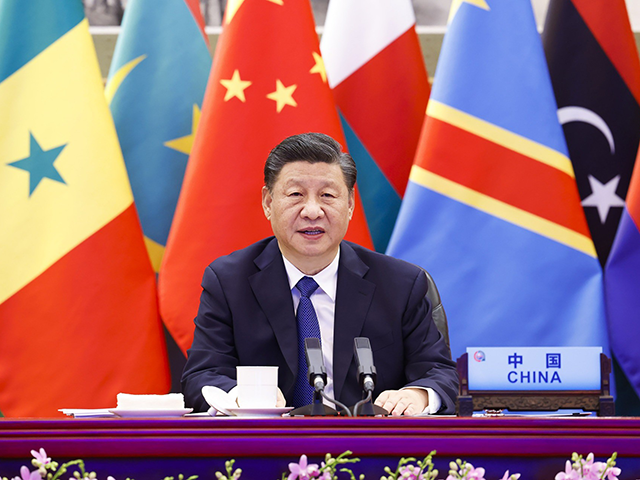China’s state-run Global Times published several articles this week — including portions of an in-depth, four-part installment — all expressing criticism of the North Atlantic Treaty Organization (NATO)’s apparent intention to expand its reach across Europe.
The newspaper said on Wednesday, NATO’s interest in expanding is aimed to “increase pressure on Russia over its conflict with Ukraine,” referring to Moscow’s latest war with Kyiv.
“Amid the still ongoing Russia-Ukraine military conflict, NATO, which has been adding fuel to the conflict, started a three-day summit in Madrid, Spain, from June 28 to 30. The NATO alliance works to increase pressure on Russia over its conflict with Ukraine while underscoring their continued concerns about China,” Global Times senior editor Ding Gang wrote in an article published on June 29.
Ding referred to NATO’s decision on June 29 to formally invite Sweden and Finland to join the U.S.-led security bloc. NATO currently counts 30 member states, 28 of which are European. Sweden and Finland are strategically located near or next to Russia and the prospect of the two nations possibly joining NATO — a powerful military alliance considered by some as a Western counter to Moscow — has upset the governments of both Russia and China, which have experienced a bilateral relationship that is “the best in history” in recent years, according to Beijing’s own account.
Chinese leader Xi Jinping indirectly referenced NATO’s ambition to expand its membership to states near and bordering Russia on June 23 during his virtual speech at the 14th BRICS summit. The association of emerging economies takes its name from an acronym of its member states: Brazil, Russia, India, China, and South Africa.
Alluding to the Washington-led military bloc, Xi stated:
Our world today is overshadowed by the dark clouds of Cold War mentality and power politics and beset by constantly emerging traditional and non-traditional security threats. Some countries attempt to expand military alliances to seek absolute security, stoke bloc-based confrontation by coercing other countries into picking sides and pursue unilateral dominance at the expense of others’ rights and interests. If such dangerous trends are allowed to continue, the world will witness even more turbulence and insecurity.
Washington led the formation of NATO in 1949 in the aftermath of World War II (1939-1945). The group’s founding was based on a principle of collective defense with an eye toward protecting Western Europe from a theoretical attack by the then-Soviet Union.
Global Times editor Ding on June 29 noted that this week’s NATO summit invited government leaders from four Asia-Pacific nations (Japan, South Korea, Australia, and New Zealand) to participate in the conference “for the first time in history.”
Reacting to this development, Ding wrote:
The militant group [NATO] which has already made troubles for Europe is now trying to create its own Asia-Pacific chapter to interfere in Asia. How did the organization come about? How was it born from the Cold War mentality and gradually became a poisoner of world peace? Why is this military alliance extending its “dark hand” to Asia? The Global Times will publish a series of four articles on how NATO is expanding. This is the second installment.
The Global Times is owned by the People’s Daily, which is the official newspaper of the Chinese Communist Party’s Central Committee.
Russia launched its latest war with neighboring Ukraine on February 24. The conflict spurred Western-allied nations, led by the U.S., to initiate an ongoing wave of financial sanctions against Russian companies and entities.

COMMENTS
Please let us know if you're having issues with commenting.